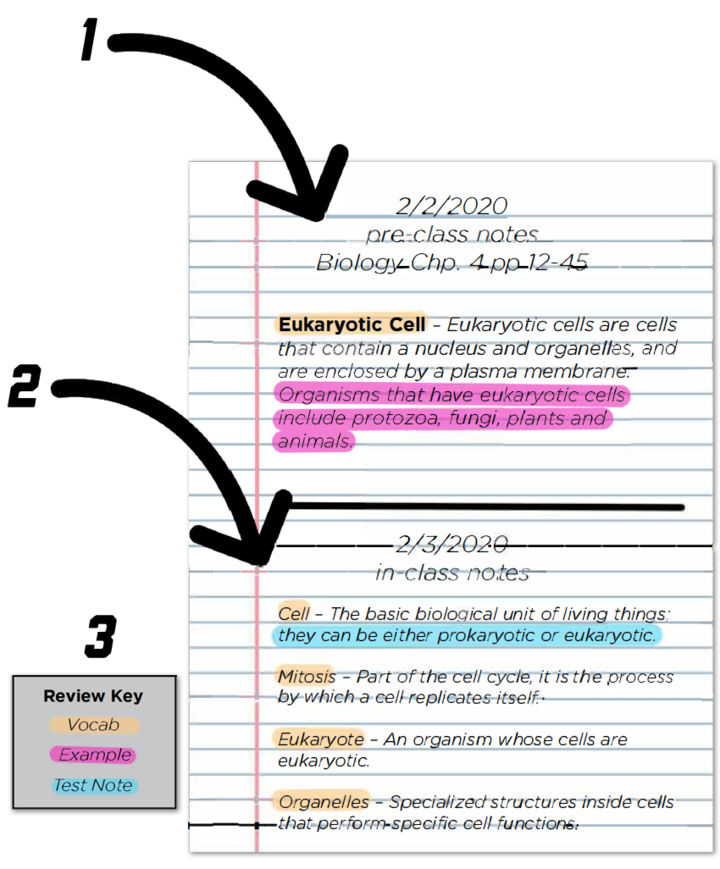Pre-class Notes
- Take notes on any advance readings (textbooks, handouts, PPTs, etc.)
- Write down anything you think is important main ideas, terms, questions
- This step is crucial as you begin to understand the material on your own (giving it your own context)
In-class Notes
- Take notes on what your professor is saying, not what it is on the slides (esp. if they are made available to you later on)
- Confirm your understanding of major concepts and ideas important to course material
- This should supplement your pre-notes; the professor is an expert in the field, and this should help you cement your understanding of the material
Review
- Dedicate time weekly to reviewing course notes and answering questions
- Create a (consistent) highlight key so you know what important info there is; this will also help you when you're gathering materials for studying later on
- By this stage, you've now reviewed (and learned) the material three times and you will retain it better for long-term storage
